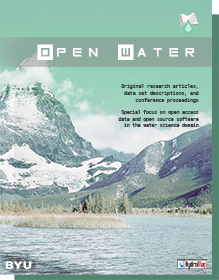Article Title
Ecological status of hot springs in Eastern Amhara Region: Macroinvertebrates diversity
Keywords
Hot spring. Macroinvertebrate. Ecological status. Diversity
Abstract
Springs are the places where ground water is discharged at specific locations. They vary dramatically as to the type of water they discharge. Hot springs are having the temperature of the water lies significantly above the mean of annual air temperature of that region. Temperature is one of the most important factors that govern species abundance and distribution. The objective of this study is to examine the relationship between biological parameters (macroinvertebrate diversity) with physicochemical water and habitat quality of hot springs in Easter Amhara Region. A cross-sectional study of physical, chemical and biological components of the hot springs were carried out to assess their ecological status. Samples were collected from March to May 2013. Biological samples were collected to provide a qualitative description of the community composition at each sampling site. Water samples were collected for analysis of selected physicochemical parameters following water quality assessment protocols. A total of 1095 macroinvertebrates classified into 10 orders and 31 families of macroinvertebrates were collected from the 12 sampling sites. The most abundant orders were Diptera 49.90%, Odonata 15.53%, Coleopteran 12.97%, and Ephmeropetra 9.5% represented by 14 families. Macroinvertebrate taxa were absent at B1 and H1 sites with the temperature of 72 0C and 70 0C respectively. However, in this study, the macroinvertebrate taxa (Chironomidae and Hydrobiidae) were found within a temperature of 52 oC at S1 and H1 sites. The results are also revealed that as the temperature gradient declines, the macroinvertebrate diversity flourished. Due to this fact, both macroinvertebrate diversity and family biotic index were negatively correlated with temperature and the correlations were significant. Human disturbance and habitant conditions varied considerably among sites in the study area. Although human disturbance and water pollution are among the factors influencing ecological quality, the strong correlations between water temperature and species diversity suggest that temperature is the major environmental gradient affecting aquatic biodiversity in hot springs.
BYU ScholarsArchive Citation
Derso, Sisay; Beyene, Adebe; Getachew, Melaku; and Ambelu, Argaw
(2015)
"Ecological status of hot springs in Eastern Amhara Region: Macroinvertebrates diversity,"
Open Water Journal: Vol. 3:
Iss.
1, Article 6.
Available at:
https://scholarsarchive.byu.edu/openwater/vol3/iss1/6
